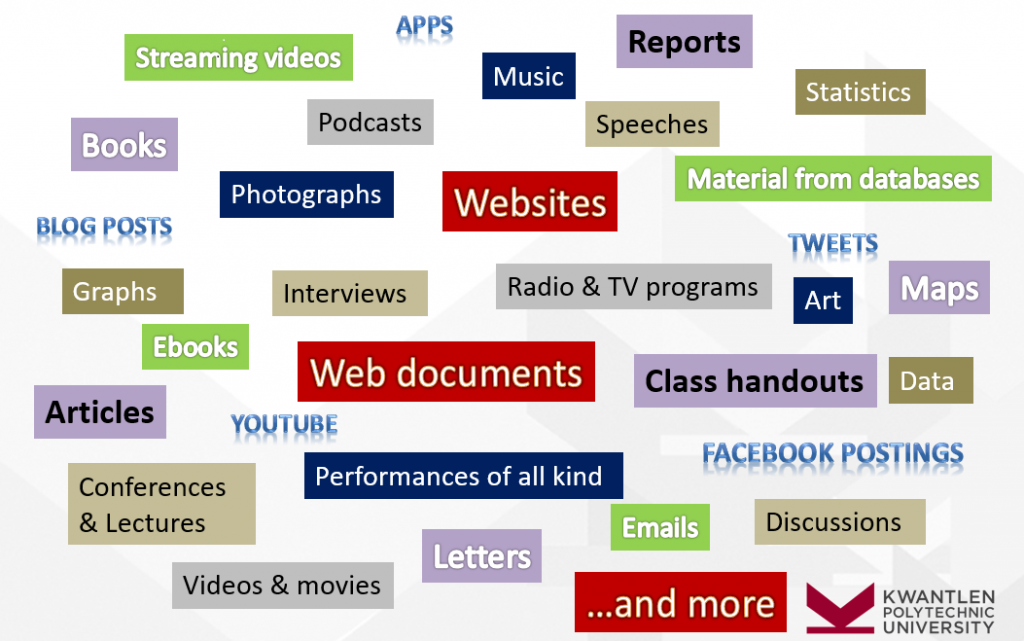2 Why Do We Cite?
Why is citing important?
1. For Scholarly Communication
Academics engage in conversations to advance their knowledge and understanding of a subject. This happens mostly in written form through the publication of scholarly materials. In these academic conversations, it is necessary and expected that all prior thought is acknowledged and that all contributors to the conversation are credited. This is mostly done through citations.
Citing sources will situate a work in the current literature and will allow the reader to distinguish prior contributions from new original thought. Readers will be able to locate and read the cited sources to learn more about them, and they can check that thoughts and ideas are being passed on accurately.
By reading, analyzing, and including scholarly sources in your assignments, you are contributing to and participating in this scholarly communication. You are therefore expected to acknowledge all the sources from which you drew information.
2. To Give Credit and Show Professionalism
 In academic writing, it is considered ethically wrong to take credit for someone else’s intellectual output. Citing your sources is a means of giving credit to the other person’s efforts and to their findings. It shows respect for the intellectual output of others and demonstrates professionalism in your writing. To support your research and to add credibility to your arguments, you will mainly use scholarly and professional sources as evidence.
In academic writing, it is considered ethically wrong to take credit for someone else’s intellectual output. Citing your sources is a means of giving credit to the other person’s efforts and to their findings. It shows respect for the intellectual output of others and demonstrates professionalism in your writing. To support your research and to add credibility to your arguments, you will mainly use scholarly and professional sources as evidence.
3. To Avoid Plagiarism
 To avoid plagiarism, you always need to give credit to the person whose work or idea you are using, whether you quote, paraphrase, summarize, or otherwise use the ideas of others. Written and spoken words, music and videos, movies, performances, artwork, photographs, graphs, tables, figures, diagrams, data, computer code, and any other intellectual or creative product must be cited. This applies even if the original author agrees that you can use their intellectual output or if you paid to use it. It also applies to reusing your own work without citing it.
To avoid plagiarism, you always need to give credit to the person whose work or idea you are using, whether you quote, paraphrase, summarize, or otherwise use the ideas of others. Written and spoken words, music and videos, movies, performances, artwork, photographs, graphs, tables, figures, diagrams, data, computer code, and any other intellectual or creative product must be cited. This applies even if the original author agrees that you can use their intellectual output or if you paid to use it. It also applies to reusing your own work without citing it.
Key Takeaways
The main reasons why we cite are to:
-
- Participate in scholarly communication
- Give credit to our sources
- Avoid plagiarism
It might help to think: is this my own idea or did I read or hear about it in one of my sources? If it came from somewhere else, cite it.

